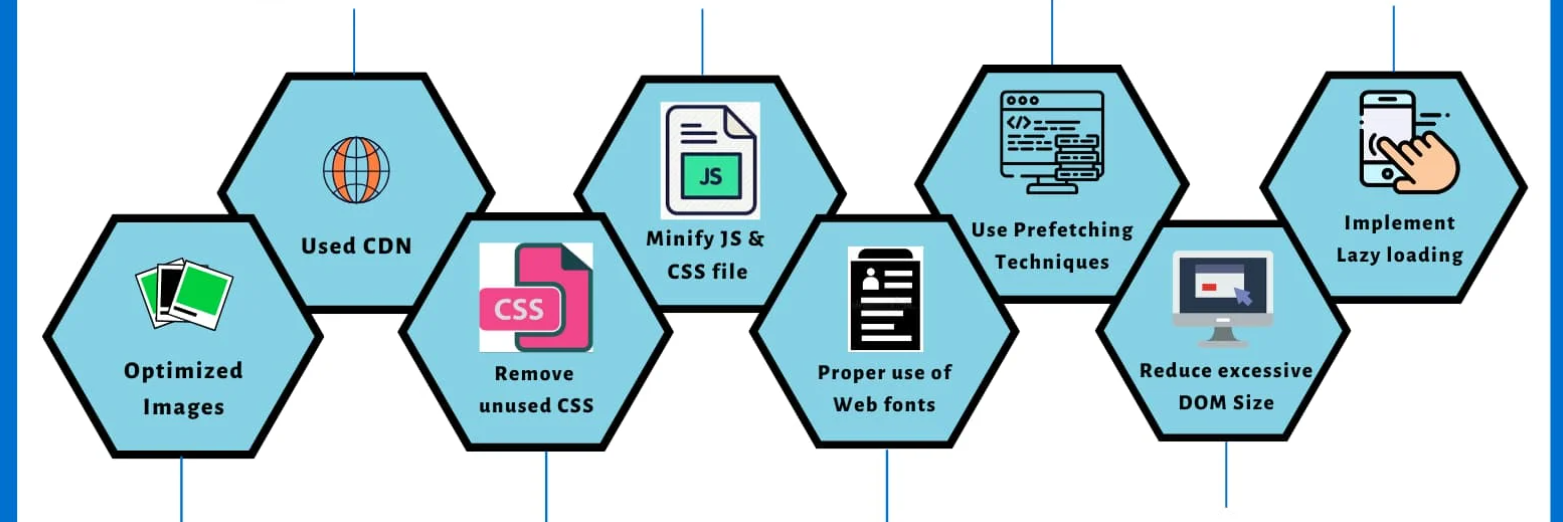Beyond Daily Yonder: Insights and Updates
Exploring daily news and insightful information from various fields.
Speeding Up the Internet: Secrets to Web Performance You Can’t Ignore
Unlock lightning-fast web performance! Discover game-changing secrets to speed up your internet today and boost your online experience!
Top 10 Tips to Boost Your Website's Speed
In today's digital landscape, a fast-loading website is crucial for retaining visitors and improving search engine rankings. Here are top 10 tips to enhance your website's speed:
- Optimize Images: Compress and resize images without sacrificing quality to speed up loading times.
- Minimize HTTP Requests: Limit the number of elements on your page to reduce server requests.
- Use a Content Delivery Network (CDN): Distribute your content across multiple servers to shorten loading times for users globally.
- Enable Browser Caching: Allow browsers to store frequently accessed files to improve load times on repeat visits.
- Minify CSS, JavaScript, and HTML: Remove unnecessary characters from your code to reduce file sizes.
Additionally, implementing these strategies can lead to significant improvements:
- Choose a Fast Web Host: Select a hosting provider that ensures high uptime and fast loading times.
- Reduce Redirects: Minimize the use of redirects as they create additional HTTP requests.
- Implement Gzip Compression: Compress files sent to the browser to enhance loading speed.
- Monitor Your Website Speed: Regularly check your website's performance and adjust as necessary.
- Keep Your Website Updated: Regular updates can fix bugs and improve speed and security.

Understanding Web Performance Metrics: What You Need to Know
Web performance metrics are essential for evaluating the efficiency and speed of your website. These metrics help you understand how users interact with your site and influence their overall experience. Key metrics to consider include page load time, first contentful paint (FCP), and time to interactive (TTI). Tracking these metrics allows you to identify bottlenecks in your website's performance and implement strategies to optimize loading speeds, ultimately leading to improved user satisfaction and engagement.
In addition to core metrics, tools like Google PageSpeed Insights and WebPageTest provide valuable insights into specific areas for improvement. By focusing on web performance metrics, you can enhance not only load times but also user retention and conversion rates. For instance, statistics show that a one-second delay in page load time can lead to a significant decrease in user satisfaction and increased bounce rates. Therefore, understanding and optimizing these metrics is crucial for maintaining a competitive edge in the digital landscape.
How Does Website Speed Impact User Experience and SEO?
Website speed is a critical factor that significantly impacts user experience. When a website takes too long to load, users are more likely to abandon it, leading to high bounce rates. Studies indicate that a delay of just a few seconds can deter users from engaging with the content. In a world where instant gratification is the norm, it is essential for websites to respond quickly. A fast-loading website not only keeps users engaged but also encourages them to explore further, ultimately enhancing the overall experience.
Moreover, website speed plays a vital role in SEO. Search engines, such as Google, consider page speed as one of the ranking factors in their algorithms. A faster website can improve a site’s visibility on search engine results pages, driving more organic traffic to the site. To optimize for speed, webmasters can implement various strategies such as minimizing HTTP requests, optimizing images, and leveraging browser caching. Therefore, improving website speed is not just about enhancing user satisfaction; it is also a crucial step toward achieving better SEO outcomes.